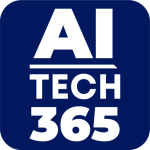MindsDB, the leader in AI data integration, announced comprehensive support for the Model Context Protocol (MCP) across both its open source and enterprise platforms. This integration positions MindsDB as a unified AI data hub that standardizes and optimizes how AI models access enterprise data, dramatically simplifying artificial intelligence deployment in complex data environments.
The Model Context Protocol, an emerging open standard developed by Anthropic, creates a universal way for AI applications to connect with data sources and tools. By implementing MCP, MindsDB now enables AI applications and agents to run federated queries over data stored in different databases and business applications as if they were a single database, eliminating a critical barrier to enterprise AI adoption.
“Organizations implementing AI face a fundamental challenge: connecting models to the right data, at the right time, with the right security controls,” said Jorge Torres, CEO of MindsDB. “This challenge grows exponentially as data landscapes become more complex. MindsDB’s MCP implementation offers a unified solution that eliminates the data sprawl that is posing a threat to enterprise AI innovation.”
Also Read: Domo Unveils New Features to Transform Development of Data Products
Enterprise-Grade MCP Implementation
MindsDB’s implementation extends beyond basic MCP compatibility to deliver critical enterprise capabilities:
- Federated Query Engine: Provides one-step querying across multiple sources with comprehensive audit capabilities
- Security Controls: Seamlessly integrates with existing enforcement mechanisms to maintain data governance
- Advanced Data Operations: Enables complex workflows including multi-source joins, automated data transformations, and natural language query conversion
- Performance Optimization: Uses native integrations when MCP support is insufficient and optimizes queries for efficient execution at the data source
“MindsDB now functions as a comprehensive data gateway that handles complex operations through MCP, freeing AI applications from needing to manage individual data sources,” said Sidney Rabsatt, Chief Product Officer of MindsDB. “This means standardized access patterns, no unnecessary data movement, and enterprise-grade security and performance. Organizations no longer need to run dozens of individual MCP servers, one for each data source. A single MindsDB MCP server instance provides federated data access to over 200 applications, databases, file systems and data stores.”
Source: PRNewswire

